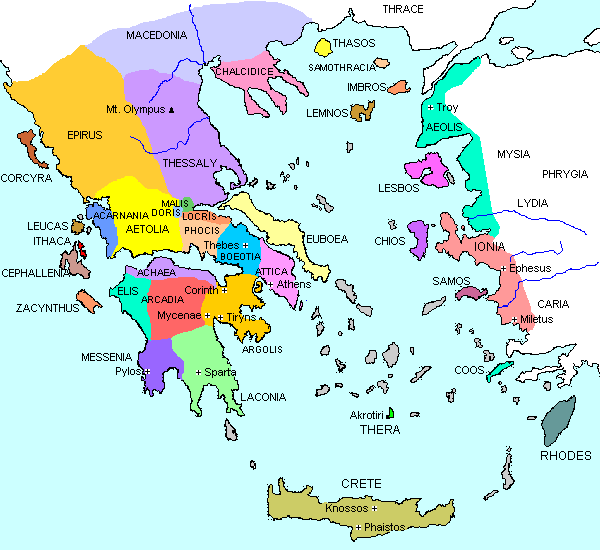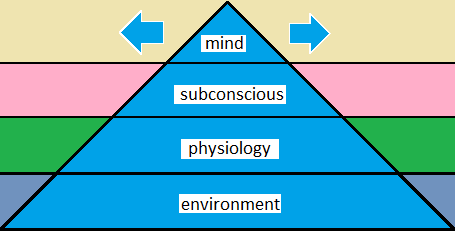Third axiom of Loginomy: We must explore what kind of system serves our larger purpose, and how to influence political organising.Heteronomous organising may result in major conflicts of interest. Moving toward autonomous organising of society decentralises power.
To our shallow contemplation, humanity has emerged in this extraordinary moment, after near four billion years of tedious biological evolution, and acquired the tools with which it can develop superintelligence, abolish suffering, and spread humanity beyond a solitary speck of stardust. Yet, we are generally immersed in our private life in our current sociocultural environment. Our ancestors were trying to survive in their immediate environment, which is the form of life we are naturally tuned into. However, our "selfish" programming is subtle; we certainly have the potential to care for the larger ecosystem we live in, which benefits our genetic family. If we perceive that the branch we sit on supports us, we will probably not saw it off. My attempt at Loginomy concludes that the primary purpose of politics is to ensure our own continuation and prosperity; continuing the pattern of life that is our species. A closer investigation reveals that the only probable threat to our survival, the next few decades, is the large scale use of destructive technology, which might come about in a conflict between major concentrations of power. A local war between North- and South-Korea would not destroy the world, but a war between NATO and China or Russia might. Thus the precise task of a logical political system is to diminish the risk of lethal conflicts of interest between major concentrations of power.To achieve a situation opposite of major power concentrations duking it out on the battlefield of Earth, somehow our political organising needs to both inhibit and pander to everyones interests such that severe conflicts of interest do not emerge. Which seems an impossible task. Some political ideologies unable to solve the problem: Flawed political systems.
-
presumptions - redistribution, competition, natural organisation
- Socialism represent, in various forms, the largest part of the political spectrum. It may originate in some idea of altruism, but the amount of corruptible aspects of its construction is enormous. Its bureaucracy may appropriates all sorts of resources, including the value of people's work, and may spend it on all sorts of minority interests based on minority decisions. This generates a bureaucratic power concentration entangled in corporatism. Some advocates of socialism perhaps wish to correct 'the injustice of capitalism', but capitalism may simply be viewed as a market dynamic, and is not the root cause of power concentration.
- Libertarianism is weary of corporatism, but it wrongly assesses that this dynamic eminates from 'the socialist commoner' and not from the power concentrations themselves. Libertarianism is founded on a metaphysical view of minority rights to 'property', even though Science reflects rights as arbitrary solutions in the collective division of resources. In a society of reduced tribal and religious identity, this ideological belief make sense of the world through simplistic economic models; models seen as an ultimate reality guiding human society. Unfortunately, libertarianism is only allergic to 'the state', which ignores the obvious: the will to simply privatise resources is misguided, since private oligarchies seek to solidify its powers through a feudalistic structuring of society.
- Anarchism is not even a system, but a vague daydream of how people will self-organise 'if only we get rid of the current system'. Anarcho-capitalists believe people should "naturally organise" in a "capitalist" fashion, while anarcho-syndicalists believe people should "naturally organise" into a form of "communism". However, an-capitalism & an-syndicalism is in their outline the same thing - lack of power behind any collective Law. Its believers have apparently never comprehended that Nature (and their own behaviour) is a pattern, and that you may simply look at a world map to find how humans universally organise themselves - through territorial organisations! Power is influence, and you cannot establish power vacuums in large societies (without the use of force, which makes it not a power vacuum in the first place).
Autonomy is the opposite of heteronomy.
heteronomy 1. The political subjection of a community to the rule of another power or to an external law. 2. The state of being beholden to external influences. autonomy 1. Self-government; freedom to act or function independently. 2. (philosophy) The capacity to make an informed, uncoerced decision. (Wiktionary.org)
The reverse of a top-down structure, is a bottom-up structure. The reverse of major power concentrations, is local power reflecting local interest. One could infer that the reverse of having your society ruled by an external power concentration, is a democracy. But while autonomy is by definition democratic, democracies are often not:- Simply voting on a propaganda campaign every four years (parliamentarism) poorly reflects the concept of democracy. - In a large-scale democracy, individual voices drown among the pressure from power concentrations on the centralised government. - Elected officials have the option to surrender the nation's autonomy to external rulers.
Therefore we need a notion of politics that distinguishes itself from our rather corrupt democracies. The concept autonomy should suffice. Autonomy means self-rule; implying a decentralisation of power. The ideal of autonomy is perhaps found in the romantic view of the Greek city states - connected through culture and trade, but independent and self-ruled. Close enough to learn from each other, but with enough distance not to collapse by another's mistakes.
Finding what generates autonomy.
Spreading awareness about Autonomy.
Heteronomy|---(move fromward)---Awareness---(move toward)--->Autonomy
Moving fromward a bad environment and toward a good environment requires awareness of what is bad and good. Since power concentrates naturally, we need to consciously contemplate this dynamic to alter the pattern. The environment will follow whatever pattern is unfolding, but as we consciously contemplate our behaviour, the pattern changes.

In the next chapter, I will present a principled, political model that addresses the obstacles I listed above.